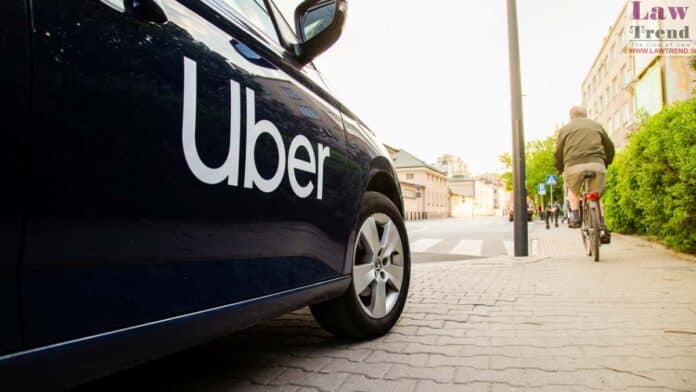Observing that no person including digital intermediaries can continue as an aggregator in the absence of a license, the Supreme Court on Monday asked Uber India to apply for it with transport authorities for continuing its services in Maharashtra.
The top court took serious note of the non-framing of rules for public transport aggregators under the Motor Vehicles Act by the Maharashtra government, saying the state should not “dither” as “indecision” leads to uncertainty in the business of aggregators.
The Bombay High Court, on March 7, last year, had ordered that app-based taxi firms such as Ola and Uber cannot operate in Maharashtra without valid licences and directed all such aggregators to apply for valid licences if they wished to continue operations.

The top court, in April last year, had ordered status quo on the high court’s direction asking Uber India to comply with Motor Vehicle Aggregator (MVA) Guidelines issued by the Centre in the absence of state rules on the issue.
A bench comprising Chief Justice DY Chandrachud and justices PS Narasimha and JB Pardiwala directed Uber to apply for a licence as mandated under the Motor Vehicle Amendment Act, 2019 within a period of three weeks to continue its services as an aggregator in the state.
“The state government, which is a regulator, must take an expeditious decision on the formulation of an appropriate policy. The indecision of the state government leads to uncertainty in the business of aggregators, which is best avoided. We also do not want Uber to come to a halt..,” it said.
The bench permitted the aggregator to make a representation to government authorities listing out its grievances and the State will have to decide on it within a period of two weeks.
“The state government shall within a period of two weeks of submission of representation take a view of the grievance. The state government may then take an appropriate decision. In case of any grievance, it shall be open to petitioners to move the Bombay High Court,” it said.
The bench said Section 93(1) of the amended law provides that while issuing licence to an aggregator, the state government may follow the central government rules as no rules have been notified by it.
It rejected the vehement contention of Uber that the Central guidelines could not be complied with.
“This is the matter of policy which pertains to the jurisdiction of the state government. In view of the statutory regime, no person can continue as an aggregator in the absence of a licence.
“We accordingly direct petitioners (Uber firms) to apply for a license which they may do within a period of three weeks which is on or before 6th March,” it said.
The Aggregator Guidelines were notified by the Central Government in exercise of its powers under the Motor Vehicles Act.
Observing that app-based taxi firms such as Ola and Uber operating in Maharashtra without valid licenses were an instance of “complete lawlessness,” the High Court had directed all such aggregators to apply for valid licenses by March 16, last year if they wished to continue their operations.
The HC had refrained from prohibiting such cabs from plying in the meanwhile saying it was aware such a move would adversely affect commuters.
The high court had passed the directions while hearing public interest litigation filed by advocate Savina Crasto highlighting the lack of an effective grievance redressal mechanism for customers using the Uber India app.
Crasto had cited an incident from November 2020, when she booked an Uber ride in the city and was dropped off mid-way at a “shady dark place” and she found that the firm’s app had no effective option to lodge complaints.
Though the central government had issued the Motor Vehicle Aggregator Guidelines, meant to regulate such cabs, those in the state were operating based on permits issued to them under Maharashtra City Taxi Rules 2017.







